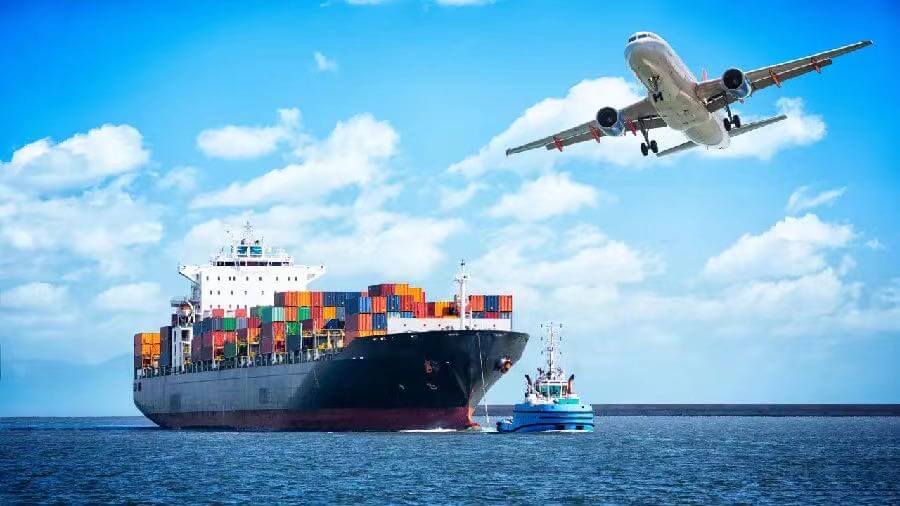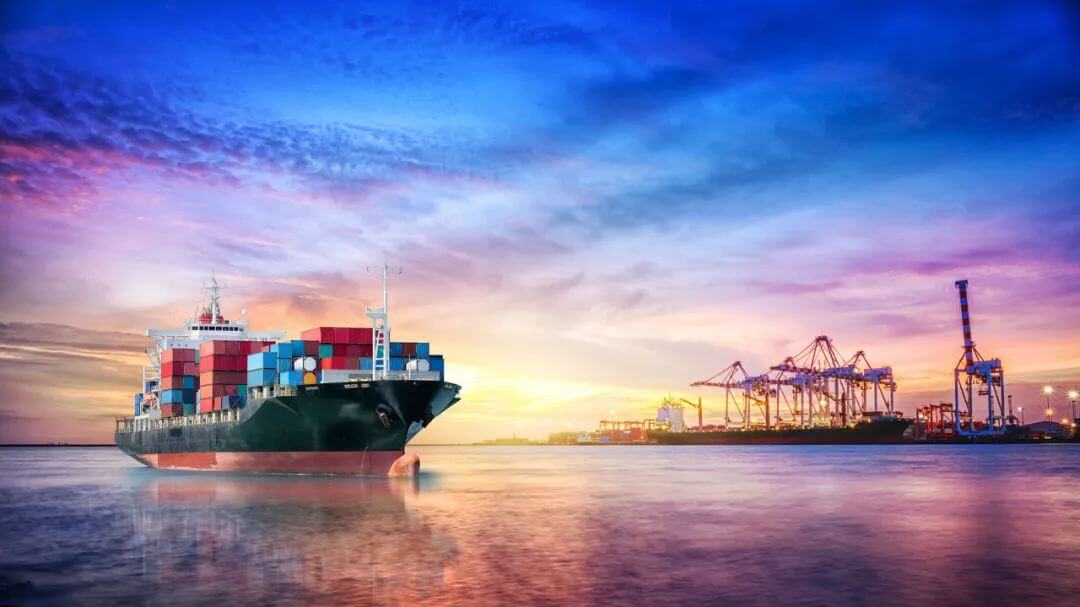Intermediate trade
 2023-03-01
2023-03-01
 247
247

Entrepot trade, also known as entrepot tradeEntrepot tradeIn International, it refers to the import and export business of goods not directly between the producing country and the consuming country, but through a third country.This kind of trade is entrepot trade for transit countries.Trade goods can be transported from the exporting country to a third country without processing in a third country (packaging, sorting, selection, packing, etc. are not processing), and then sold to the consumer country;They can also be transported directly from producing countries to consuming countries without passing through third countries.There is no trade link between producing and consuming countries whereas transit countries trade with producing and consuming countries respectively.
Qualification condition
In general, entrepot trade should meet two conditions of the country where middlemen are located:
(1) Natural conditions, that is, the port of the transit country must be a deep-water port with large throughput and superior geographical position, which is located as a transportation hub between countries or on major international routes;
② Artificial conditions: Transfer is required to adopt special preferential tariff policies and trade policies, such as Free and Free, so that the cost of Transfer will not be too high.At the same time, it is required that the infrastructure, transportation, finance, information and other service systems in the region be developed and complete to provide convenience for entrepot trade.
Main approach
There are various forms of entrepot trade, which can be divided into entrepot trade and document processing trade according to different circulation channels of goods:
Entrepot trade
Ze-EXP is also called Ze-EXP.All foreign goods imported without processing, and then EXP goes abroad, are re-EXP.In some countries in Europe and Latin America, all foreign goods brought into the country's customs warehouses, which are unprocessed and then transported abroad from the customs warehouses, are classified as re-EXP.In Britain and the United States, in addition to the above, foreign goods entering the domestic market, as long as they are not processed and shipped abroad, that is, "domestic goods", are also listed as re-EXP.For imported goods processed and shipped abroad, or imported raw materials made into another product shipped abroad, and "temporary trade" shipped abroad,They are not classified as re-EXP.Re-export commodities are not included in the statistics of foreign trade import and export commodities, but are counted separately.
Document processing trade
It refers to the trade mode in which exporters establish business relations with importers through intermediaries, and then transport goods directly from exporting countries to importing countries.In this case, the goods are not cleared for import and export in a third country, and the intermediary only participates in the processing of transaction documents.This kind of document processing trade is actually the EXP of goods ownership.Re-EXPTradePatterns often appear in the early stage of entrepot trade development.Due to lack of experience and communication equipment, entrepot trade is completed through the import and export of goods.With the development of entrepot trade, document processing trade has gradually developed.This method can avoid the cumbersome procedures of import and export of goods in third countries, save freight, INSURANCE CHARGE and handling fees, reduce risks and shorten delivery time.Delivery time is beneficial for importers to seize the good opportunity of selling goods, thus obtaining greater profits.Therefore, document processing trade has gradually replaced entrepot trade mode and become the main mode of entrepot trade.
According to whether the goods are processed in transit, entrepot trade can be divided into pure entrepot trade and processing entrepot trade.

Pure entrepot trade
The so-called pure entrepot trade refers to the re-EXP of imported goods after being processed by middlemen in third countries.Of course, middlemen can sort, mix, pack and label imported goods in local bonded warehouses.These activities do not alter the shape, nature, structure or use of the original imported goods and therefore do not fall within the scope of processing.
Processing entrepot trade
Refers to the trade mode in which goods are imported to Transfer after customs clearance, and then processed and added in value from EXP to the importing country.Goods are processed to a certain extent, which makes some changes in shape, nature, structure or use between the processed goods and the original unprocessed goods.This trade mode can not only obtain re-export profits, but also obtain processing profits.Processing entrepot trade requires a large number of labor, low wages, better infrastructure, and bonded warehouses or bonded areas in Transfer, so that the processing cost of goods is low and it is internationally competitive.Processing andEntrepot tradeCan process and assemble the whole batch of goods;You can also purchase some parts from abroad and assemble them with the original equipment into large-scale equipment EXP.
Conceptual difference
Difference from entrepot trade
Transit trade: Trade in which goods from another country's EXP are unprocessed, reorganized and transported to another country through the border of that country.Including direct entrepot trade and indirect entrepot trade.For example, commodity transactions between landlocked countries and non-neighbouring countries must pass through the borders of third countries.For third country customs, such trade will be classified as entrepot trade.However, if such trade is transported by air through the airspace of a third country, the customs of the third country will not include it in the entrepot trade.There are two kinds of entrepot trade, one is called direct entrepot trade, that is, after foreign goods arrive at the port of the country, under the direct supervision of the customs,They exit from other ports through domestic transportation lines, and sometimes they are directly transferred without Break bulk and transshipment as tools. Countries that undertake Transfer generally charge a certain fee.The other is called indirect entrepot trade, which refers to the activity that foreign goods are stored in the bonded warehouse of the customs after arriving at the port of the country, and then shipped out of the bonded warehouse without processing and reorganization, and then shipped out of the country.
The difference between entrepot trade and entrepot trade is that in entrepot trade, the ownership of goods is first transferred from exporters in producing countries to merchants in third countries (or regions), and then transferred to merchants in importing countries. Who finally consumes the goods.In entrepot trade, the ownership of goods does not need to be transferred to merchants in third countries.
Difference from indirect trade
Indirect Trade Indirect Trade is the symmetry of "direct trade", which refers to the behavior that commodity producing countries and commodity consuming countries buy and sell commodities through third countries.Among them, the producing country is indirect EXP;The consumer country is indirect import;The third country is EXP.Entrepot trade refers to the trade between producing countries and consuming countries through third countries.Even if the goods are transported directly from the producing country to the consuming country, as long as there is no direct transaction relationship between them, the transactions are carried out by a third country.
Indirect trade is the entrepot trade of transit countries.Trade goods can be transported from exporting countries to third countries without processing in third countries (sub-packaging, classification, selection, sorting, etc. are not processing), and then sold to consumer countries;They can also be transported directly from producing countries to consuming countries without passing through third countries.There is no trading relationship between the consumer country, but the producer country and the consumer country, but the transit country trades with the producer country and the consumer country respectively.Entrepot trade has the meaning of goods distribution center, warehouse and storage yard, which isEntrepot tradeAnd part of indirect entrepot trade.
The emergence of entrepot trade is mainly due to the geographical, historical, political or economic factors of some countries (or regions), whose geographical position is suitable as the sales center of goods.These countries (or regions) import a large number of commodities, and besides some commodities are consumed in their own countries or regions, they also go to neighboring countries and regions from EXP.Such as Singapore, Hong Kong, London, Rotterdam, etc., are internationally renowned transit places, with a large number of entrepot trade.Through entrepot trade, they can not only obtain considerable entrepot profits and income from warehousing, transportation, loading and unloading, taxation, etc., but also promote the development of local finance, transportation, telecommunications and other industries.
For import payment of foreign exchange under entrepot trade, the importer shall hold the corresponding import and export contract, certificate of entrepot trade management right, detailed business description (expected date of foreign exchange collection must be listed), bank remittance certificate, record sheet, import verification sheet and foreign exchange sale notice of SAFE. After the authenticity is verified by SAFE, the importer shall affix the business seal, bank certificate of foreign exchange sale notice and relevant documents to the foreign exchange sale notice for payment of foreign exchange.When writing off, it shall be handled with the foreign exchange settlement form/receipt notice obtained by the EXP.The amount earned by EXP must be greater than the amount paid for imports.
For the import payment under the item of receiving first and paying later in entrepot trade, it is necessary to provide the corresponding import and export contract, entrepot trade management right certificate, business details, record form, import verification sheet, commercial paper, foreign exchange collection and settlement sheet or receipt account to notify the purchase of foreign exchange for payment or directly go to the bank for overseas payment. When writing off, write-off shall be handled with the settlement/receipt of foreign exchange received in advance.



















